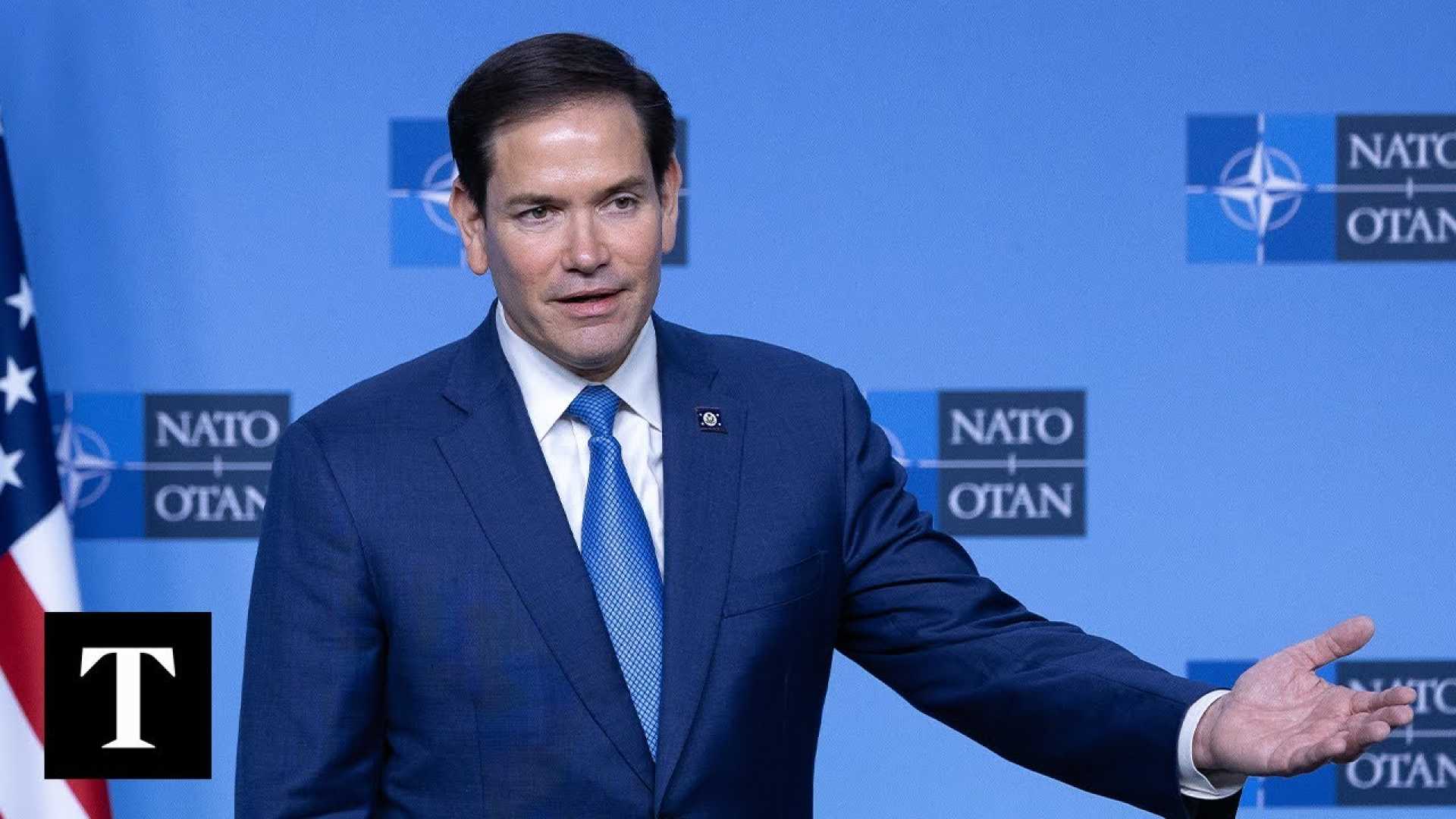Politics
Marco Rubio Reassures NATO Allies Amid Growing Concerns

BRUSSELS, Belgium (AP) — U.S. Secretary of State Marco Rubio reassured European allies Thursday during a NATO meeting, emphasizing that the Trump administration remains committed to the alliance despite widespread concerns regarding its future. Rubio’s statements aimed to quell fears tied to President Donald Trump’s mixed signals about NATO and recent tariff announcements.
Rubio and newly appointed U.S. Ambassador to NATO Matt Whitaker participated in discussions among foreign ministers at NATO headquarters, where the commitment to security and defense spending was a focal point. “The United States is as active in NATO as it has ever been,” Rubio told reporters, referencing the negative media portrayal of Trump’s stance on the alliance.
Amidst worries about a possible U.S. troop drawdown in Europe and increasing tariffs, European officials expressed a pressing need for clarity on U.S. plans. A senior NATO diplomat noted, “We need to preempt a rapid retreat, but we’ve had nothing precise from the U.S. yet.”
Rubio stated that NATO must become stronger and more capable, reiterating the Trump administration’s push for allies, including the U.S., to aim for defense spending of up to 5% of GDP, twice the current benchmark. “That includes the United States,” he added, aiming to leave the meeting with commitments from member states.
The backdrop of the meeting included ongoing geopolitical tensions, especially concerning Russia and Ukraine. European leaders expressed concern that Trump’s recent tariffs would impede alliance cohesion. French Foreign Minister Jean-Noël Barrot remarked that NATO’s unity is being “tested by the decisions taken and announced” by Trump.
Rubio’s diplomatic engagement included sideline meetings with other foreign ministers, including Denmark’s Lars Løkke Rasmussen, where the sensitive issue of Greenland surfaced. However, no comments were made on the territory, a point of contention due to Trump’s previous interest in purchasing it.
In addressing the broader security landscape, Rubio reaffirmed that the U.S. seeks to bolster NATO’s defense capabilities without diminishing its own commitments in Europe. “European NATO countries have to increase their defense spending,” said Dutch Foreign Minister Caspar Veldkamp, reflecting a shared interest in reducing reliance on U.S. military support.
While previous U.S. administrations have routinely emphasized NATO’s essential role in transatlantic security, Rubio’s remarks sought to establish continuity in U.S. foreign policy amidst fears of isolationist tendencies fueled by the current administration’s rhetoric.
The outcomes of this NATO meeting could shape alliances moving forward, particularly concerning military expenditure and collective defense strategies in response to evolving threats, including challenges posed by Russia. As tensions continue, allies await further clarity from the U.S. on its strategic priorities in Europe.












